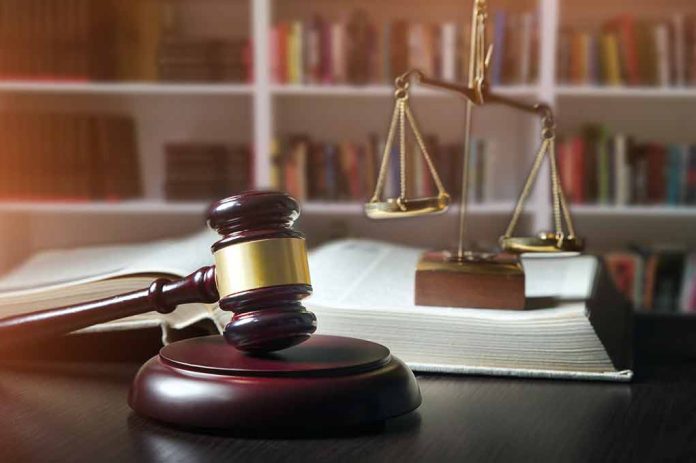
The question of Hunter Biden’s ability to practice law in Connecticut offers a deeper look into a situation where ethics and legal eligibility intersect with high moral standards.
At a Glance
- President Joe Biden signed a pardon for Hunter Biden covering specific dates.
- The Department of Justice rejected a plea deal due to political pressure.
- Biden’s decision to pardon his son raises questions about legal ethics.
- Hunter Biden’s law license suspension is under review.
Hunter Biden’s Legal Challenges
President Joe Biden signed a pardon for his son Hunter covering offenses dated between January 1, 2014, and December 1, 2024. This action has been met with criticism across the political spectrum due to claims of perceived corruption and broad language. The pardon records were officially filed with the Department of Justice on December 1, 2024. Despite this, Hunter Biden faces legal and professional challenges as his capacity to practice law in Connecticut becomes debated.
Biden has stated that he has not interfered with the Justice Department’s decision-making but acknowledged political elements influencing the legal proceedings. Despite the pardon, Hunter Biden’s law licenses in Washington, D.C., and Connecticut face suspension pending investigations into his conduct by the D.C. Court of Appeals. Ethical norms highlight that no professional, particularly in law, should be exempt from justice.
Legal Ethics and Professional Standards
Hunter Biden, convicted of three felony charges, continues to attract scrutiny over whether he should retain eligibility to practice law. Sources report that his conviction resulted from charges including lying about drug use for a gun purchase and tax evasion. Leading presidential aides and senior attorneys emphasize that ethical considerations and public trust must guide any decisions regarding legal licensure, regardless of political or familial connections.
The Department of Justice’s handling of Hunter Biden’s plea deal and subsequent political influences showcase jurisprudence scrutiny where high-profile cases intersect with public interest. Investigations continue into his future conduct, while the Connecticut Statewide Grievance Committee reviews his status to ensure compliance with professional standards.
Setting aside the fact that President Biden repeatedly stated he would not pardon his son, what I find most troubling is the sweeping nature of this pardon. Not only is Hunter Biden receiving clemency for multiple felony offenses—for crimes of which he was convicted and pleaded…
— Sen. Lisa Murkowski (@lisamurkowski) December 2, 2024
Public Perception and Legal Standards
The complexities around Hunter Biden’s ability to practice law despite pardons reflect broader societal discussions surrounding privilege and justice. As his case evolves, it reminds us that impartiality in the justice system is imperative. Notably, the Center for American Rights has filed complaints emphasizing that no individual, including someone of political prominence, should bypass the system’s ethical expectations.
The ongoing investigations and legal uncertainties facing Hunter underline the critical balance between legal rights and ethical obligations in fostering public trust. As Connecticut deliberates his license status, the case underscores the necessity for objective legal frameworks safeguarding fairness without external influence.
Sources:
- Statement from President Joe Biden
- Biden isn’t the first president to pardon a relative. Here’s how the power works
- Pardoned Convict Hunter Biden Could Still Practice Law, Complaint Alleges







